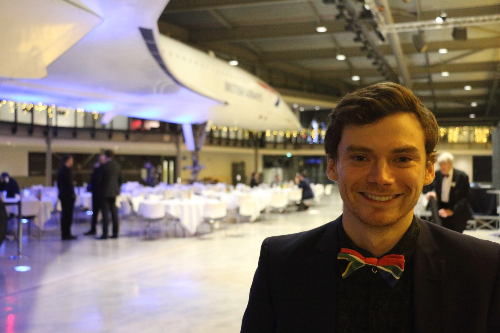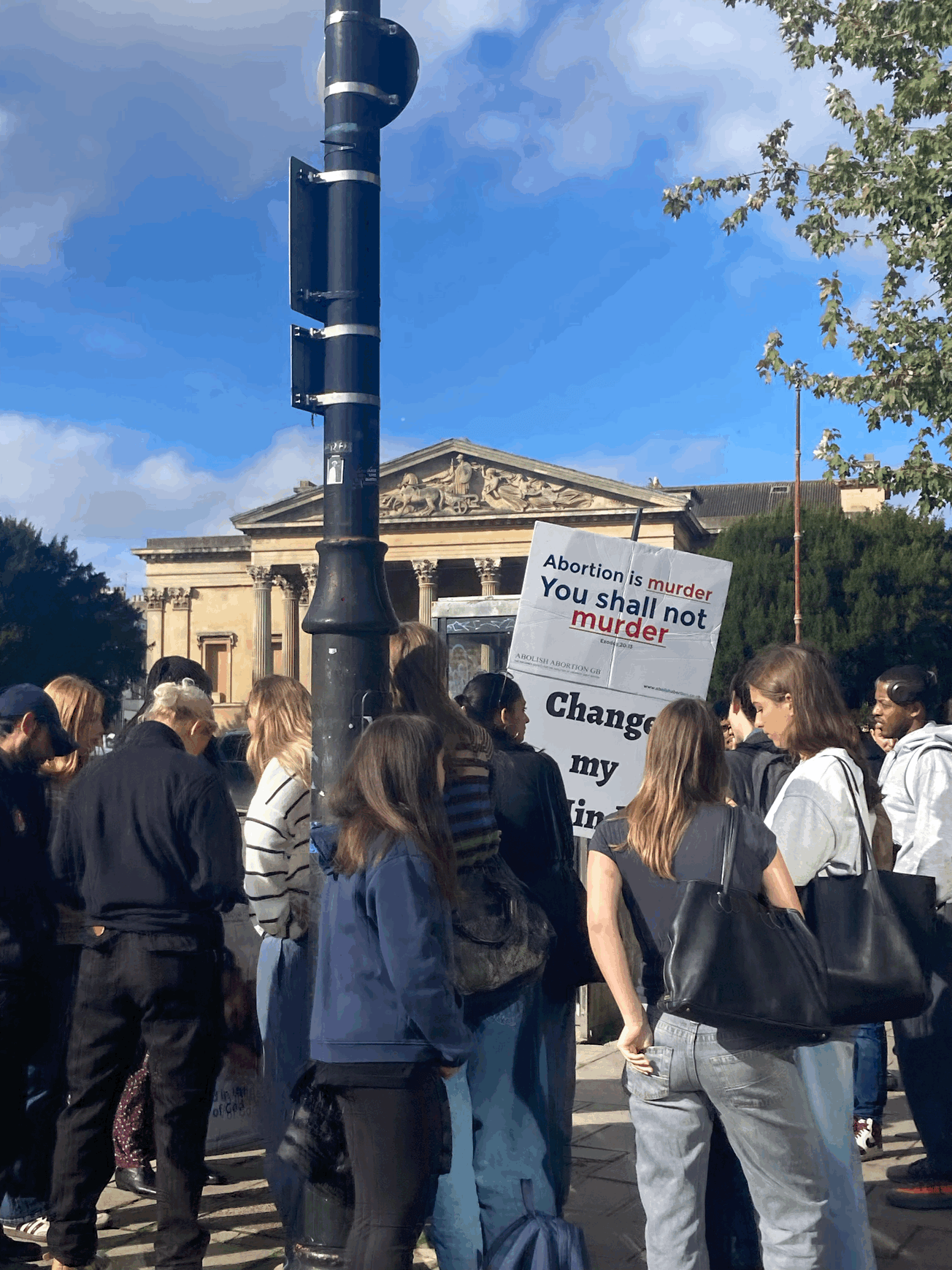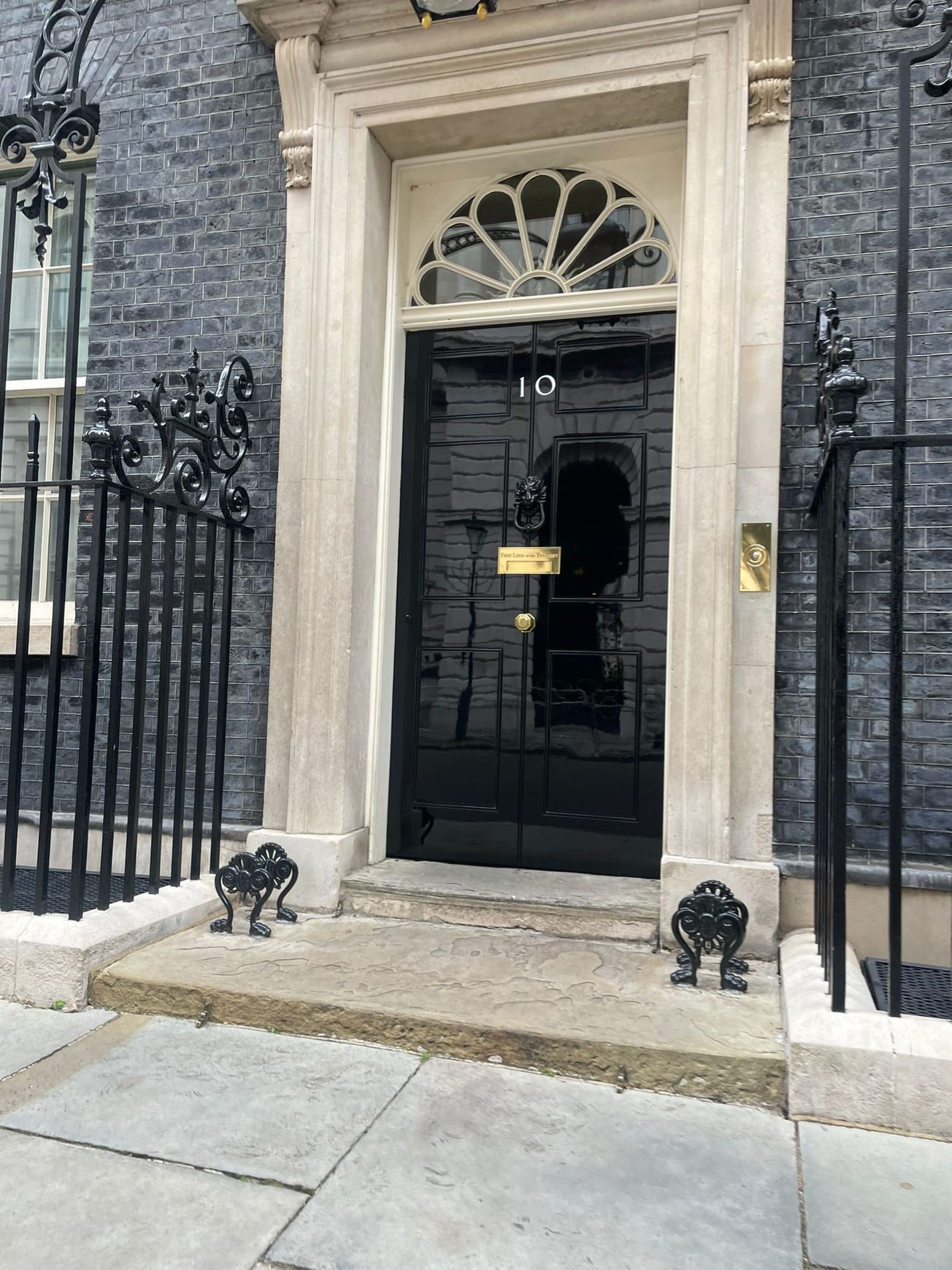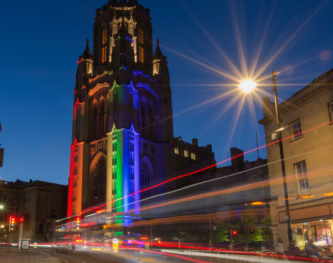By Milan Perera, Deputy Editor
In a groundbreaking stride toward reshaping the space industry, Franco Labia, a visionary queer robotics researcher at the University of Bristol, has launched Space Pride in a bid to propel the industry from the age of ‘dinosaurs’ into the 21st century.
Franco, a PhD researcher at Bristol Robotics Laboratory (BRL), a collaborative partnership between the University of Bristol and the University of the West of England (UWE Bristol), has called for far reaching changes to the sector which they describe as a ‘very much an elite old boys club and without diverse voices.’
The South African born researcher who identifies as non-binary and bisexual, describes the charity they founded, Space Pride, as a ‘joyful protest’ aimed at effecting change and bringing together the LGBTQ+ community in the international space sector.
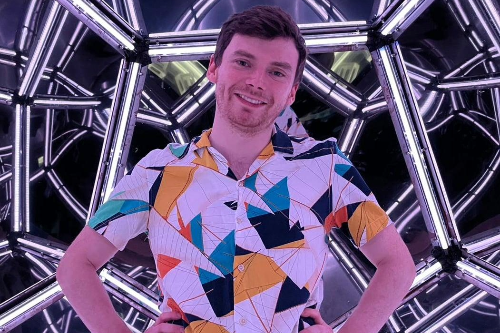
Franco Labia cites their mother, the award-winning investigative journalist as the inspiration behind their quest to open up the space industry for underrepresented groups such as the LGBTQ+ community.
On the lack of representation of queer people in the sector, they said: ‘The lack of any visible LGBTQIA+ community made me feel like there wasn’t a place for me in the international space industry.’
Space Pride, founded in October 2022, has set out to launch queer community events, networking and support schemes, a mentorship programme as part of the Space Pride Fashion Gala and placing a Space Pride artwork physically on the moon, along with a progress pride flag.
The preparations are already underway for Space Pride Fashion Gala - a fusion of art, culture and technology. It aims to highlight the themes of diversity, empowerment, innovation and breaking boundaries by blending elements of the space sector and the diverse identities within the LGBTQ+ community.
Furthermore, the event aims to showcase fashion as a medium for self-expression, inclusivity, exploration of identity, and passion for space.
📅 16 October, 2024
— Space Pride (@spacepride_) November 20, 2023
🇮🇹 MEET Digital Culture Center, Milano, Italy
🏳️🌈 An out of this world pride parade
We are delighted to announce the inaugural Space Pride Fashion Gala, which is now open to sponsors.
Find the latest Press Release at our LinkTree:https://t.co/CDgdqiJJPy pic.twitter.com/30Isn92AJI
Space Pride’s motto, ‘We Are All Made Of Stardust’, is based on the fact that nearly all elements that make up the human body are created in stars. The motto will proudly feature at the Space Pride Fashion Gala in Milan during the International Astronautical Congress, at the MEET Digital Culture Center in October 2024.
A report issued by the 2020 Space Census found that while LGBQ+ workers were well represented in the space industry, a quarter of them did not feel comfortable being open about their sexuality. The same proportion of trans employees were not comfortable being open about their gender transition. It also found that women make up 29 per cent of the workforce.
Meanwhile, an EU report on the defence, aeronautics and space industries found a ‘lack of diversity among employees, primarily in terms of sexual orientation, religious backgrounds and disabilities.’
Space Pride is set to be a platform to promote actions which will support the interests and rights of LGBTQIA+ individuals in relation to the space sector as humanity enters into a space age.
On the efforts of Franco to open up the space sector for the queer community, Tracy Brunnock, Head of Equity, Diversity & Inclusion at the University of Bristol, said: ‘Franco’s commitment to effecting change and improving diversity is really commendable. We wish them the best of luck with their fashion gala extravaganza!’
Franco’s current research is focused on how to detect life in caves on Earth and in space using swarms of robots. Once graduated they want to ‘work on innovative space missions to explore worlds and moons we’ve never seen before.’
Featured image: Freddie Turner
What do you propose to make the space industry more diverse and inclusive?

